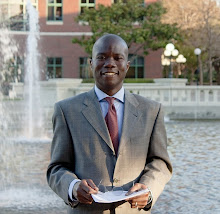Tax pro regulation on the way?
In downtown Austin, you can get a nice tattoo from one of Diablo Rojo's artists for a couple of hundred bucks.
If you go to an incompetent tax preparer in Texas' capital city, or anywhere else in the Lone Star State for that matter, filing mistakes could end up costing you a lot more in tax penalties and interest.
But Texas officials only regulate the state's tattoo parlors, not its tax pros.
I'm not picking on the state of our last president. It's not alone. In fact, only California and Oregon have any kind of rules to govern tax professionals, whether they fill out state or federal returns.
The Internal Revenue Service is thinking about changing that.
IRS Commissioner Doug Shulman says that by the end of 2009 he plans to propose a comprehensive set of recommendations that will allow his agency to keep tabs on who is getting paid to prepare tax returns and make sure they are doing the job properly.
"When people pay good money, they should not get bad advice," said Shulman at a press conference announcing the initiative.
'Transformational' tax shift: Part of the reason for cracking down on tax pros, says Shulman, is that tax times have changed.
"We've seen a transformational shift in the U.S. tax system. Very few people sit down with pen and paper and fill out their 1040s," he says. "Instead, now more than 80 percent of taxpayers go to a tax professional or use tax preparation software to help them file their returns."
While that might be good for those of us struggling to get our forms into the IRS, Shulman says it poses a big problem: There is no national standard for these tax preparers who are taking care of the majority of today's filings.
Advocate agrees: Shulman's effort is music to National Taxpayer Advocate Nina Olson's ears. Among the 17 legislative recommendations to Congress that Olson included in her latest annual report, Olson once again called for federal oversight of preparers:
The time has come to regulate federal tax return preparers. Tax return preparers are an essential component of taxpayer rights and tax compliance. Despite the vital role return preparers play in effective tax administration, anyone can prepare a tax return for a fee -- with no training, no licensing, and no oversight required. Attorneys, certified public accountants, and enrolled agents are all licensed by state or federal authorities and are subject to censure, suspension, or disbarment from practice before the IRS in the event of wrongdoing. Yet there is virtually no federal oversight over 'unenrolled' preparers, who constitute the majority of tax return preparers today. The National Taxpayer Advocate recommends that Congress enact a registration, examination, certification, and enforcement program for unenrolled tax return preparers. In addition, Congress should direct the Treasury Department and the IRS to conduct a public awareness campaign to inform the public about the registration requirements.
At least one major player in the tax preparation field is for increased oversight.
"For many years, H&R Block has strong(ly) supported efforts to upgrade training, professionalism and ethics among all tax preparers," says H&R Block chairman Richard Breeden. "We believe that all tax assistance providers should be trained and licensed as necessary to insure that tax returns are prepared accurately every time."
Professional pros and cons: Some individual tax pros are for some limits on themselves and their colleagues. Robert D. Flach, a New Jersey accountant, tax preparer and fellow tax blogger, told me that "as it is now, any cafone can put out shingle as 'tax pro.'" (You gotta love that Garden State terminology!)
Others, however, are worried about unnecessary regulation. Joe Kristan, a certified public accountant and partner (and tax blogger) for the Des Moines, Iowa-based Roth & Company accounting firm, believes that the IRS already has severe penalties that it can impose to deter and shut down abusers. "If the current amount of bureaucracy isn't effective, more and bigger bureaucracy probably isn't the solution," says Kristan.
I don't do tax returns for a living. And I don't use a tax pro myself. But I think the IRS does need to track folks who are out there filling out returns for other folks.
Some are simply inept; they need to be located and dealt with before they cause their clients any more costly grief. Others are downright criminals and they definitely need to be put out of business (and into jail) as soon as possible.
If knowing that the IRS is keeping a sharper eye on them will help get these folks out of the tax system, then I say good for you and go for it Mr. Shulman!
Do your tax pro homework: In the meantime, if you hire someone to handle your taxes, do your due diligence.
Pick the proper preparer for your personal tax needs, and be sure to check that person out thoroughly before handing over your tax and financial information.
Freelance writer Kay Bell writes Bankrate's tax stories from her home in Austin, Texas.
Subscribe to:
Post Comments (Atom)

No comments:
Post a Comment